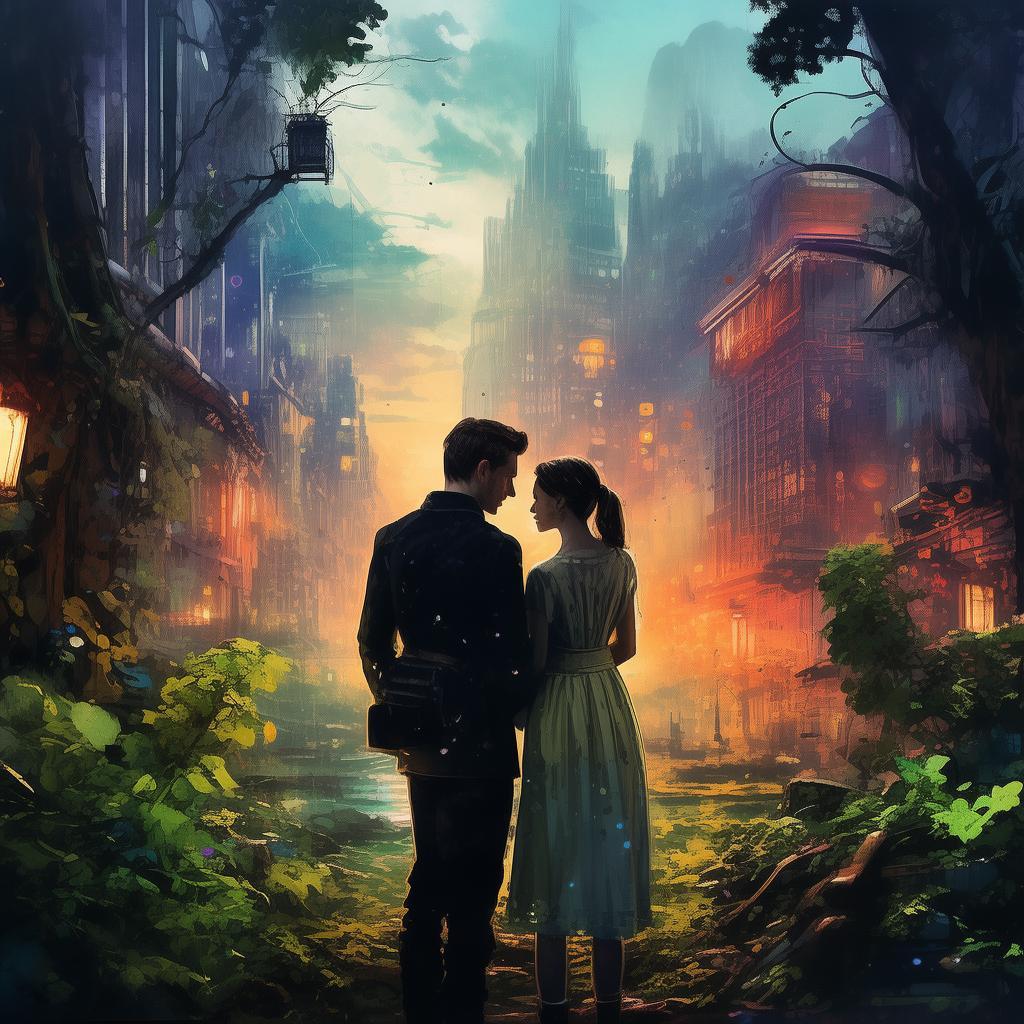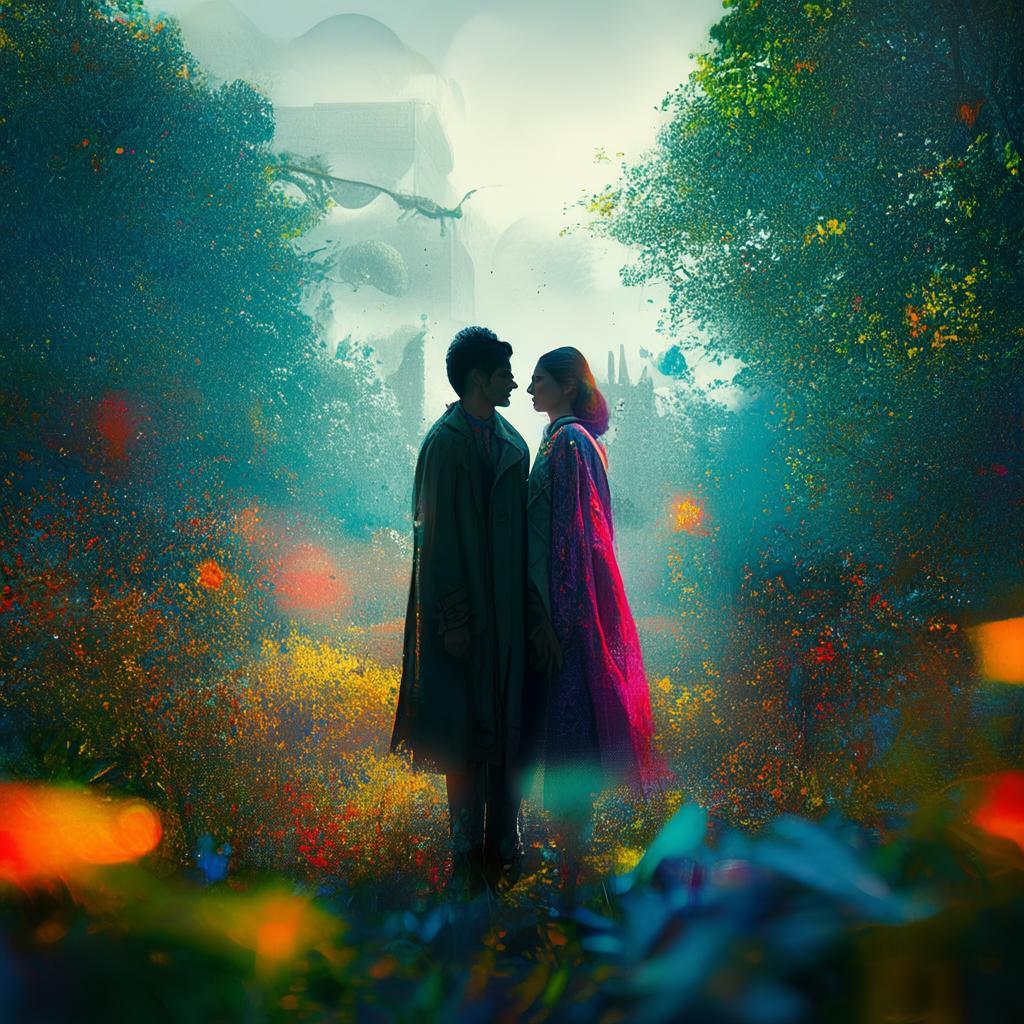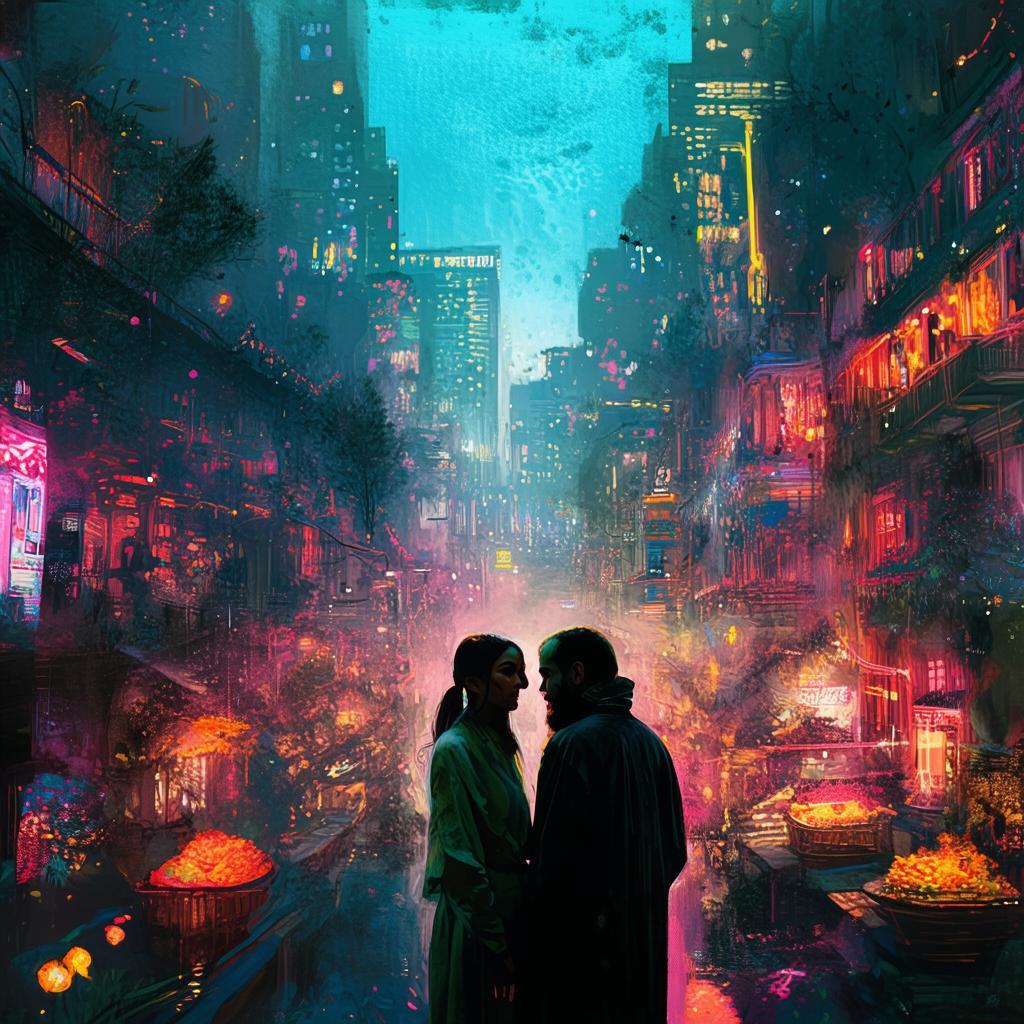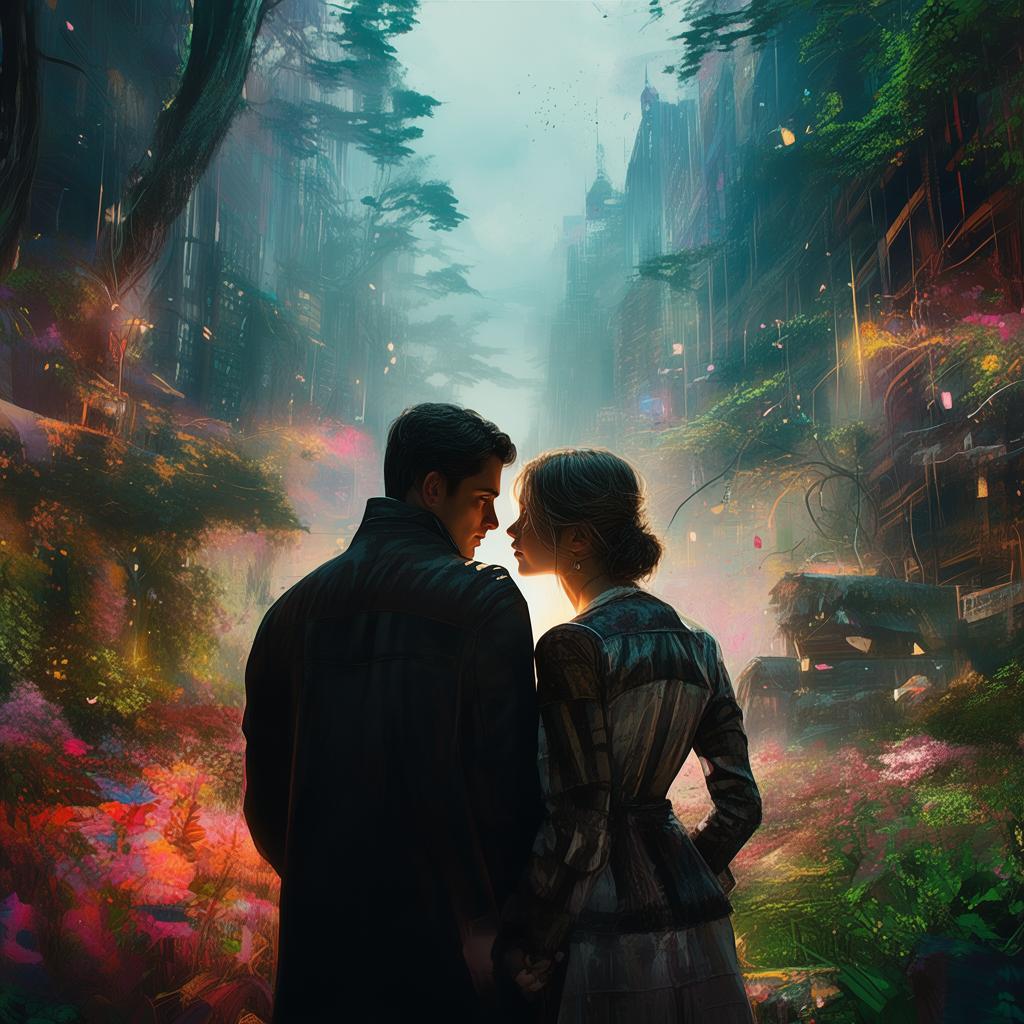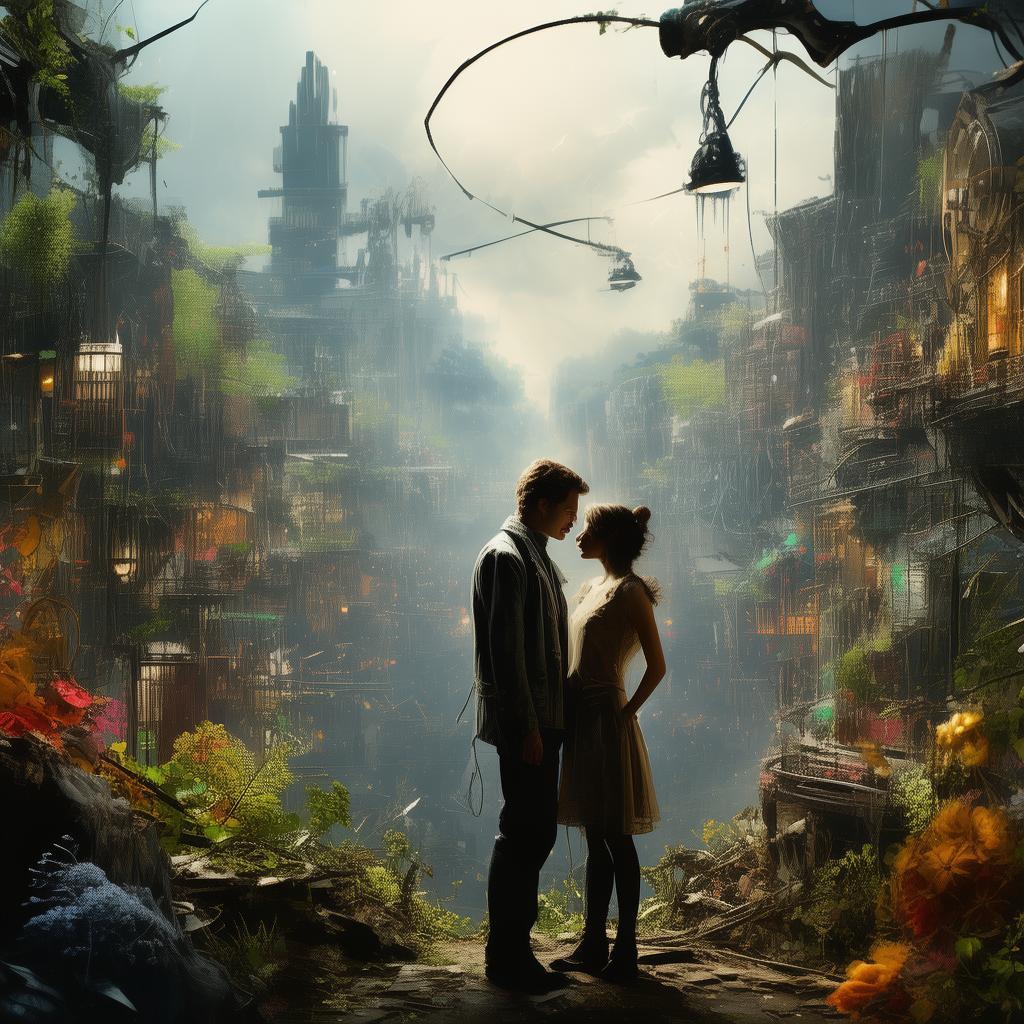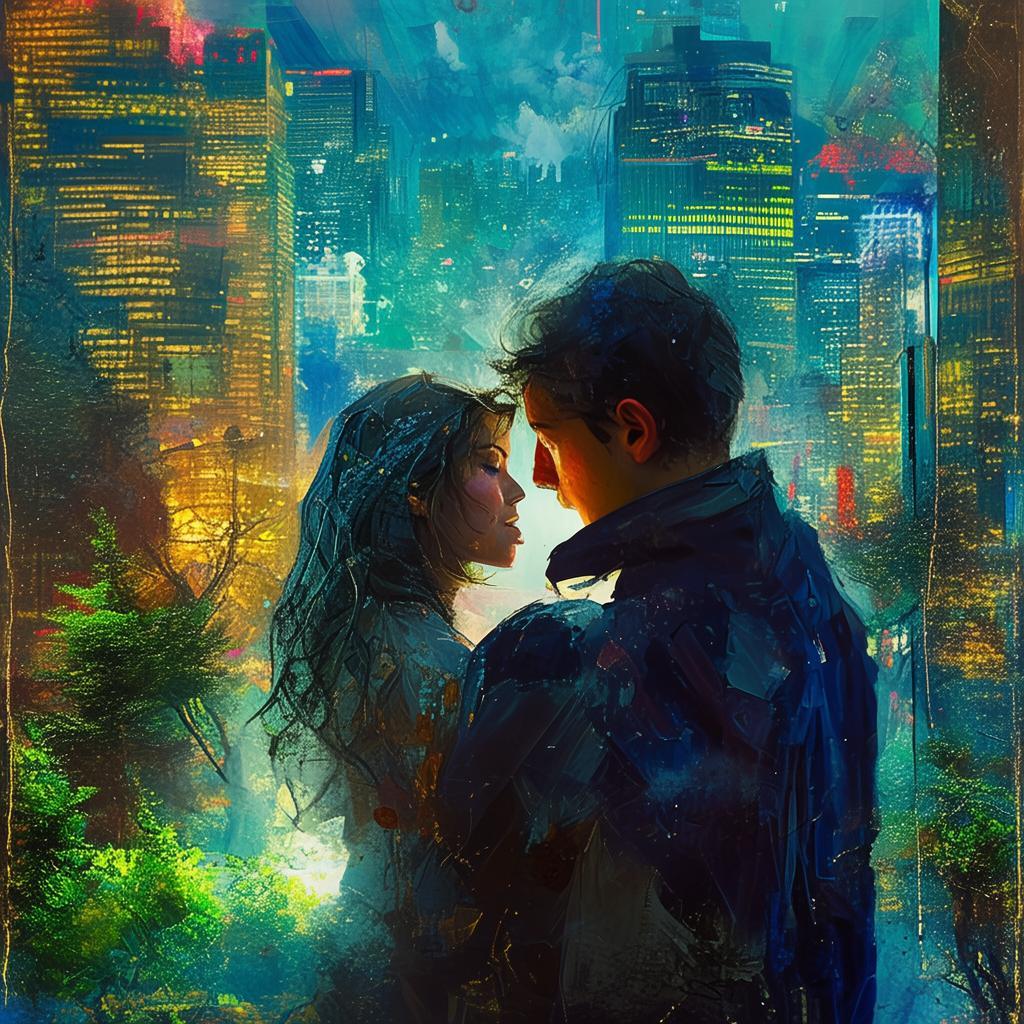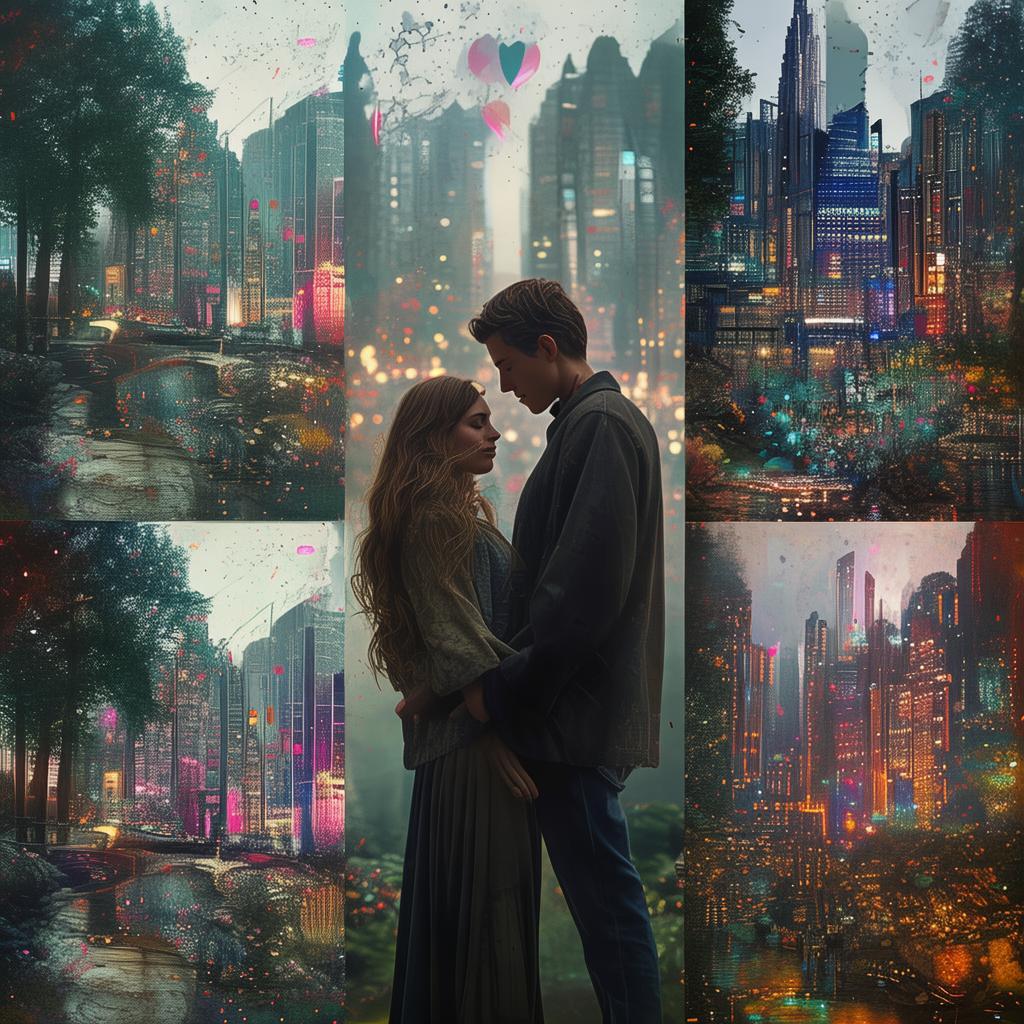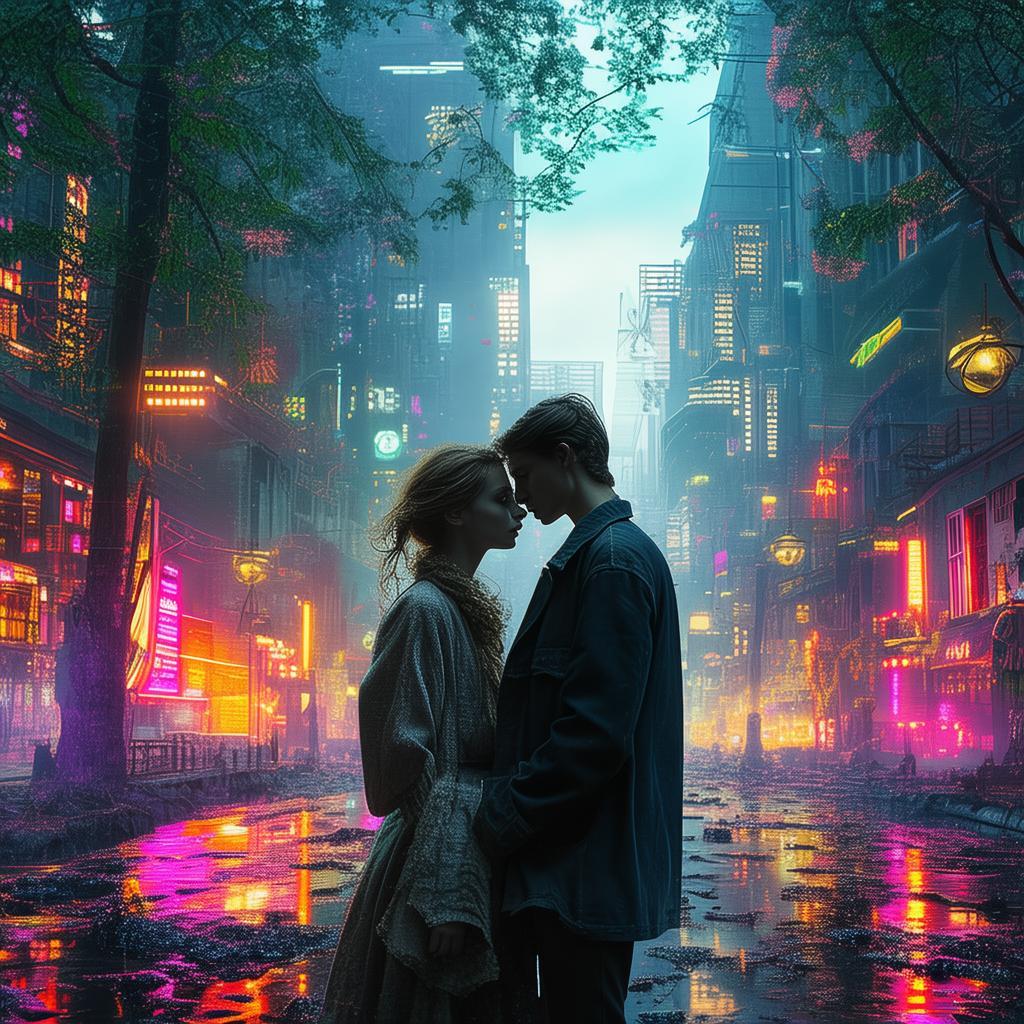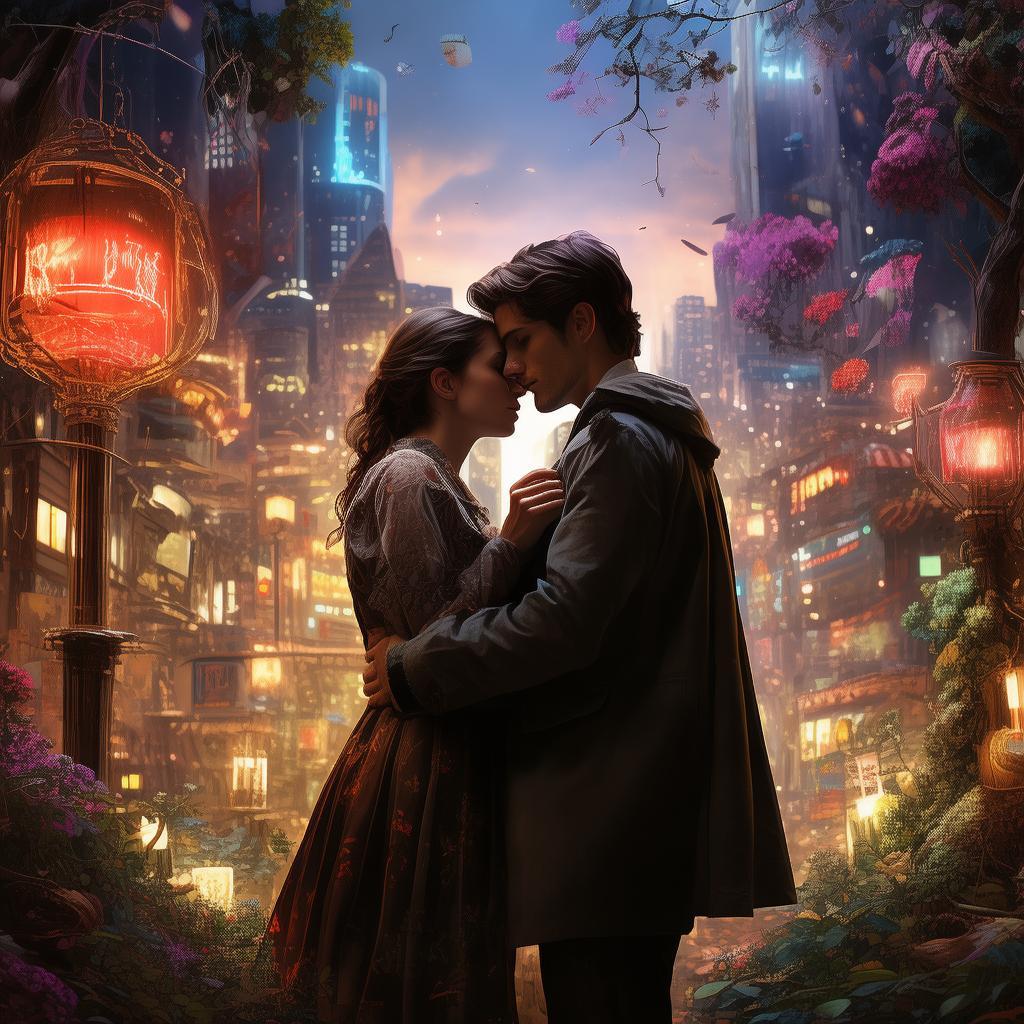The Melody of Betrayal: A Japanese Guitarist's Love Lament
In the bustling heart of Tokyo, where the neon lights danced against the night sky, there lived a young guitarist named Kaito. His fingers danced across the strings of his beloved guitar, creating melodies that could melt the coldest of hearts. Kaito was not just a musician; he was a maestro of emotion, able to translate his deepest feelings into the language of music.
The city was his canvas, and the strings of his guitar were his brush. Every note was a stroke of his soul, each chord a heartbeat of his innermost desires. Yet, there was one melody that he yearned to compose above all others—the melody of his love.
Yumi was Kaito's muse, the inspiration that fueled his art. Her laughter was a melody that could be heard across the room, her smile a light that illuminated the darkest corners of his world. They were inseparable, two souls bound by the strings of their love.
Kaito would often play his guitar under the moonlight, Yumi by his side, her eyes reflecting the music in her soul. They shared a love that was as deep as the ocean, as boundless as the sky. But as the seasons changed, so did their love, and with it, Kaito's heart ached.
One evening, as the stars began to twinkle in the night sky, Kaito received a letter. It was from Yumi, and it was unlike any letter he had ever received from her before. The words were cold, the tone distant. It spoke of a man named Taro, a man who had claimed to love her even more than Kaito.

The letter was a betrayal, a stab in the heart, and Kaito felt the pain as sharply as if someone had taken his guitar from him. He sat alone, the melody of love now a haunting lament. The strings of his guitar were silent, the notes that once danced in the air now lay still.
The next day, Kaito's world shattered. Yumi was gone, her heart taken by Taro. The love that once filled his life was now replaced by a void so deep that it seemed to stretch to the very ends of the universe. Despondent, Kaito found himself in the same place he had played his guitar for Yumi, now alone, the music he once shared with her a distant memory.
Days turned into weeks, and Kaito's music turned sour. The melodies that once spoke of love now whispered tales of heartache. He played for hours, the strings echoing the pain of his soul, but no matter how hard he tried, he could not compose the melody of his lost love.
One night, as the rain poured down upon Tokyo, Kaito found himself in a small, dimly lit bar. The patrons were few, and the music was a blend of jazz and blues, a sound that seemed to resonate with Kaito's current state of mind. In the corner, a man sat playing the guitar, his fingers moving with a grace that belied the heavy burden in his eyes.
Kaito approached the man, his eyes reflecting the storm outside. "I am Kaito," he said, his voice barely above a whisper. "I am in pain, and I do not know how to play my guitar anymore."
The man looked up, his eyes filled with empathy. "I am Taro," he replied. "I know a little about pain and loss."
Taro began to play, his fingers moving over the strings with a newfound purpose. The music was a blend of sorrow and hope, a testament to the human spirit's ability to endure and survive.
Kaito listened, his heart aching, but there was something in Taro's music that spoke to him. It was as if Taro was speaking directly to his soul, telling him that even in the darkest of times, there was a light that could be found.
The next morning, Kaito returned to his home, the guitar in his hands. He sat down and began to play, the first notes a testament to his newfound resolve. The music was not the melody of love that he once knew, but it was a new melody, one that spoke of hope and resilience.
The melody of his lost love was now a lament, a song that would echo through the ages. But it was also a melody of new beginnings, a testament to the human spirit's ability to rise above even the deepest of heartaches.
And so, Kaito continued to play, his music a reflection of his journey through love, loss, and betrayal. His guitar was no longer just a tool of expression; it was a bridge between his past and his future, a reminder that even in the darkest of times, there was always a light to be found.
✨ Original Statement ✨
All articles published on this website (including but not limited to text, images, videos, and other content) are original or authorized for reposting and are protected by relevant laws. Without the explicit written permission of this website, no individual or organization may copy, modify, repost, or use the content for commercial purposes.
If you need to quote or cooperate, please contact this site for authorization. We reserve the right to pursue legal responsibility for any unauthorized use.
Hereby declared.
